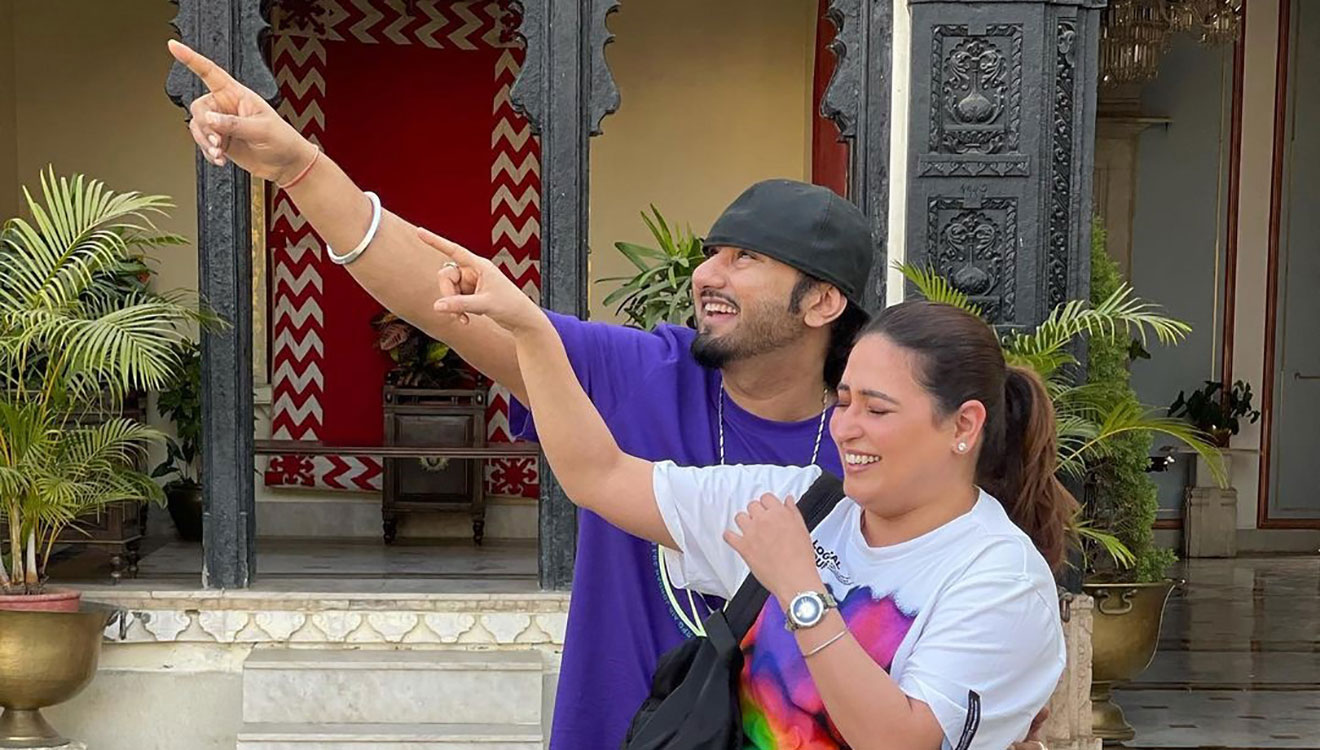In director Prajesh Sen’s Meri Awas Suno, a radio jockey, a winner of many awards and hearts for his terrific voice and a talent for making heartwarming conversations with strangers on-air, loses his voice one day and subsequently, his will to live. Doctors warn his kin that he will not be able to stand loud noise and that he might not be able to speak again. In a film that revolves around sound and silence, however, the most prominent element is an overbearing background score which, like a nosy elder relative at a wedding party, dictates the narrative and turns it into a mess it wasn’t supposed to be.
Meri Awas Suno is an official remake of Konttho (2019), a Bengali drama directed by Nandita Roy. Konttho suffered from a similar tonal problem, but Jaya Ahsan’s central performance, as a buoyant speech therapist, kept the narrative afloat. In Prajesh Sen’s film, Manju Warrier plays the role. Warrier channels her famous off-screen charm into the character, but she turns the speech therapist into the unidimensional perky woman for whom mainstream cinema has always had a soft spot. When you first meet Rashmi Padath (Warrier), she is the chief guest at a women’s day event in a missionary-run college. Delivering a fiery speech about women’s liberation, she throws occasional smug glances at the nuns seated on the stage. The film puffs Rashmi up by contrasting her sense of freedom against the nun’s religiousness.
The flatness in Rashmi’s characterisation indicates the overall vapidity of the film. The film is verbose – every scene has pages of conversations, often expository, written without a flair, much like the daily spiel Jayasurya’s Shankar delivers on-air, in his popular FM programme, about staying optimistic in life. Sshivada plays his ever-supporting wife who balances a full-time job and overwhelmingly heavy domestic responsibilities with seeming ease. Her hair and face remain perfectly graceful throughout the film, unaffected by the tragedy that descended on the family. Their house, airy and luxurious, does not collect grime or chaos but stays as photogenic as it always used to.
The sole interesting segment in the film features Sshivada’s battered wife who wonders if her husband is turning into a stranger. She is a delight to watch on the screen, much more mellower an actor than her male co-star who uses every muscle and nerve to mark frustration and rage. The dinner table scene where she refuses to serve water to Shankar is the film’s highpoint, well-acted and surprisingly, decently staged, rife with tension.
The FM stations penetrated into the Malayali media sector at the beginning of the 2010s, quickly becoming widely popular. In Meri Awaas Suno, which happens in 2018, the FM stations continue to hold a great Lage Raho Munna Bhai-like power over the city’s people. In a sequence, in the beginning, Shankar rescues a lonely little girl from killing herself on her birthday. Everything about the sequence – from the building of tension to the sentimental background score drawing pity for the little girl – comes across as naive.
Prajesh Sen creates powerful moments for Jayasurya to sink his teeth into. He gets great close-ups and lengthy takes where he seamlessly goes from one emotion to another, flaunting his acting mettle. But the film suffers from utterly unimaginative writing and stilted staging of scenes. Consider the treatment sessions featuring Rashmi and Shankar. The duo roam typical spots of attraction – beaches, gardens and cafes – like a couple on a romantic date. While lauding this non-traditional therapy, the film looks down upon the more widely practised, affordable and professional system where the patients and doctors interact within a hospital environment without encroaching into each other’s personal spaces.
Recommended
Meri Awaas Suno, in its writing and texture, resembles a Ranjith Sankar film, and this is, most definitely, not a compliment. It has colourful characters and a critical situation worth the viewer’s attention, but the narrative often tastes like a public awareness video that sells optimism. Shankar learns to speak and regains the will to live, but the film stays voiceless.
*****
This Meri Awas Suno review is a Silverscreen original article. It was not paid for or commissioned by anyone associated with the movie. Silverscreen.in and its writers do not have any commercial relationship with movies that are reviewed on the site.



